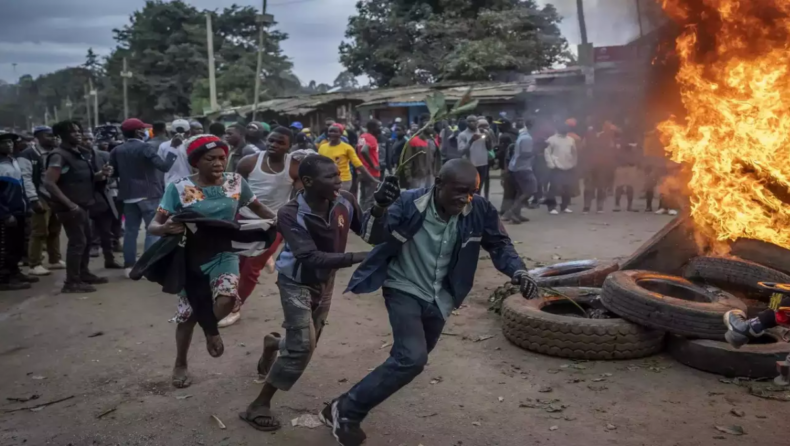Kenya is calm a day after the announcement of Deputy President William Ruto as the winner of the presidential election
On Tuesday, Kenya was calm, a day after Deputy President William Ruto announced the winner of the small presidential election over longtime competitor Raila Odinga—a vote closely observed in the East African nation that has been important for regional stability.
There were agitations by Odinga’s followers in several towns on Monday night. After the chaos around the announcement of the presidential election, many electoral commissioners claimed that the process was opaque.
Those commissioners, who were appointed by President Uhuru Kenyatta the previous year, provided no details regarding their sudden objection after an election broadly seen as the most transparent ever in Kenya.
Raila Odinga, 77, has been pursuing the presidency for half a century but has made no public comments or appearances until now. His campaign has indicated it might question the election result in court and has seven days after the announcement to do so.
The Supreme Court would then have 14 days to make a judgement. The Electoral Commission Chairman said, “Ruto won with nearly 50.5% of votes, whereas Odinga earned about 49%.”
On Tuesday, the Local Elections Observation Group declared that its greatly regarded parallel voting tally verifies the official results in an essential check on the process.
The group said, “We have made strides toward authentic elections.” It called the division in the electoral commission unfortunate but observed that the chairman is the one charged under the constitution with declaring the results.
Odinga’s campaign had awaited victory after the retiring president, in a political turn, backed his old enemy Odinga in place of his deputy president.
In the minutes before the announcement, shocked Kenyans saw shouting Odinga followers, including newly elected members of parliament, fight with electoral commission officers before police restored calm.
Ruto, 55, requested Kenyans by building the election around economic differences and not the ethical ones that have long decided the nation’s politics, with at times deadly results.
He presented himself as an outsider from quiet beginnings, challenging the political dynasties of Kenyatta and Odinga, whose fathers were Kenya’s first president and vice president.
Yet the vote share in last Tuesday’s election fell to 65% as Kenyans throughout the 65-million-strong nation expressed displeasure and lack of confidence in the candidates’ ability to deal with the issues of rising prices, and high unemployment, and widespread corruption.
Ruto, who is now rich, has encountered and denied numerous allegations of land grabs and other grafts. On Tuesday in Nairobi’s silent capital, motorbike rider Distrious Mirimo noticed that some businesses remained closed.
“Those who have closed are afraid, but I encourage them to open since nothing is happening,” he said. “The president has already been selected, and we must accept the decision.”
As an increasing number of African leaders issued statements congratulating Ruto, Kenya’s retiring president kept quiet.













